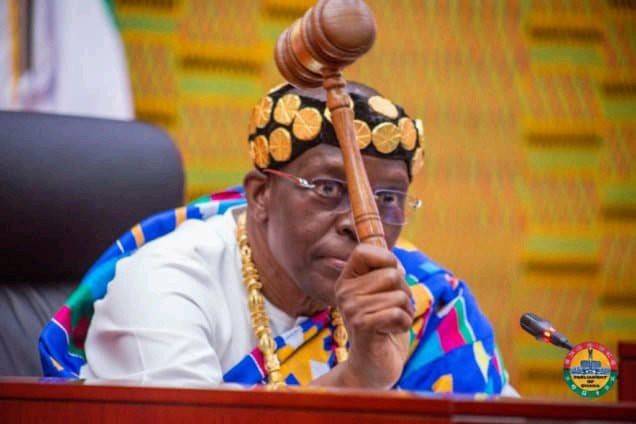In a recent development in Ghana’s Parliament, Speaker Alban Bagbin has rejected a request made by the Majority Leader, Alexander Afenyo-Markin, to recall Members of Parliament ahead of the general elections set for December. This decision has sparked discussions across political circles and among the public. According to Speaker Bagbin, parliamentary activities will remain suspended until after the elections. He emphasized that this period is a crucial time for political parties and candidates to focus on connecting with the electorate, rather than attending to parliamentary duties.
This situation is linked to the fact that parliamentary business usually slows down during election years. During this time, politicians, including MPs, are busy campaigning, trying to secure votes from the public. The general elections in December are particularly significant because they will determine the next president and members of Parliament. In this environment, Speaker Bagbin's decision to keep Parliament on hold seems to be in line with his desire to give politicians the time and space they need to fully engage with the people they represent.
Alexander Afenyo-Markin, who represents the Majority party in Parliament, had requested that Parliament be reconvened ahead of the elections. His request was based on the idea that there were still important issues that needed to be discussed and addressed before the country went into election mode. However, Speaker Bagbin disagreed, stating that recalling Parliament at this time would be a distraction and would take focus away from the pressing need for political parties to engage with voters during the election campaign.
The timing of this decision comes as various political parties are preparing for a very competitive election season. Ghana, a country in West Africa, holds regular elections to choose its president and members of Parliament. These elections are vital for the country's democratic process, as they allow citizens to choose leaders who will represent their interests. In the lead-up to the elections, candidates typically spend a lot of time meeting with voters, listening to their concerns, and making promises to improve the country if they are elected.
Speaker Bagbin, in his response, pointed out that this time is especially important for political candidates and parties. Campaigning is a crucial part of the election process, as it allows candidates to explain their plans and ideas to the voters. It also allows voters to decide which candidate or party they believe can best lead the country. Bagbin argued that if Parliament were to be recalled now, it would create a distraction for MPs who should be focusing on the election campaign instead of parliamentary business.
In addition to his concern about the election campaign, Speaker Bagbin also expressed his belief that the general atmosphere during an election year is one of heightened political tension. Parliament, being the center of political power in the country, is often caught up in these tensions. By not reconvening Parliament before the elections, Bagbin hopes to prevent any unnecessary conflicts or disruptions that could arise from the political climate during this time.
This decision has raised mixed reactions. Some people agree with Speaker Bagbin, believing that politicians should focus on engaging with the electorate and that parliamentary activities can resume after the elections. Others, however, feel that there are important matters that still need to be addressed in Parliament before the election period begins. These individuals argue that critical decisions about the country’s future should not be postponed due to the election season.
One of the key debates surrounding this decision is the balance between parliamentary duties and the election campaign. On one hand, there is the argument that MPs have a responsibility to the people they represent, and this includes addressing important national issues through Parliament. On the other hand, there is the view that election campaigns are a time for politicians to connect directly with voters, hear their concerns, and present their solutions for the country’s challenges.
As the elections draw closer, all eyes are on the political parties and their candidates. The election campaign period is usually intense, as each party tries to gain support and convince voters of their ability to lead the country. During this time, political parties organize rallies, distribute campaign materials, and engage in debates to highlight their policies and plans. For many voters, this is a time of great excitement, as they prepare to make their voices heard at the ballot box.
Speaker Bagbin’s decision reflects the importance of this period and the need for political leaders to focus on the issues that matter most to the people. By keeping Parliament on hold until after the elections, Bagbin aims to ensure that MPs and political parties have the time and space they need to fully engage in the electoral process.
In conclusion, Speaker Alban Bagbin’s decision to reject the request to recall Parliament ahead of the December elections has sparked debate but also highlights the significance of the election season. As Ghana moves closer to its general elections, politicians will need to balance their parliamentary duties with their campaigning responsibilities. Speaker Bagbin’s stance suggests that the time leading up to the elections is crucial for politicians to connect with the electorate and focus on the issues that will shape the country’s future.


